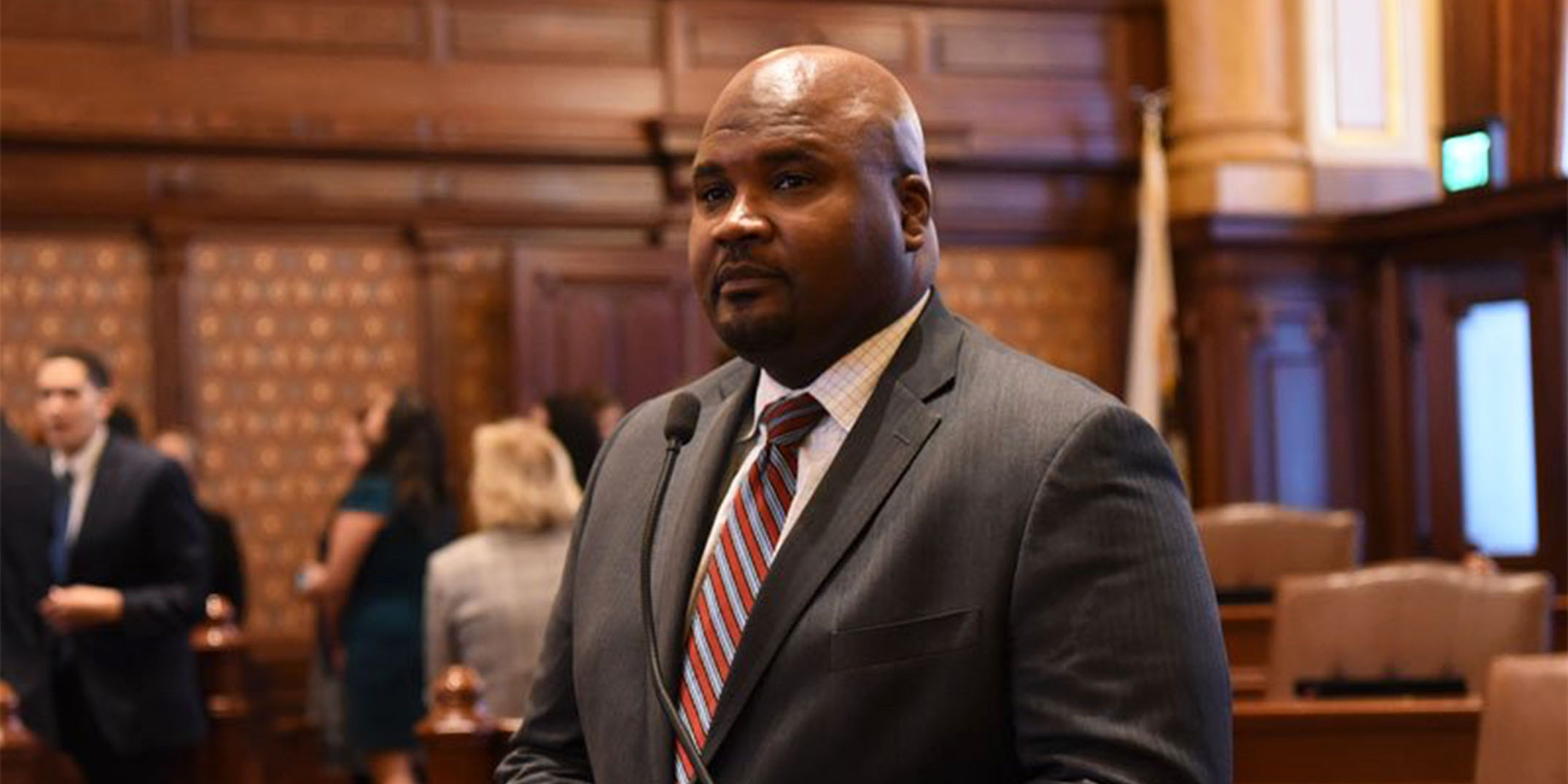
SPRINGFIELD—A plan to fund numerous construction projects throughout the state passed through the Senate today.
State Senator Elgie R. Sims Jr., a Chicago Democrat, supported the comprehensive infrastructure plan that totals more than $45 billion.
“This is a meaningful investment in communities throughout Illinois,” Sims said. “Modernizing the state’s infrastructure will solve many safety and traffic issues while spurring economic growth by creating jobs.”
The last major capital plan was in 2009. The current measure will fund a variety of different projects, including fixing 2,300 bridges, renovations at community colleges and road construction.
Capital investments are as follows:
|
Program |
Funding |
Percentage |
|
Roads and bridges |
$33.2 billion |
74% |
|
Education |
$3.4 billion |
8% |
|
State facilities |
$4 billion |
10% |
|
Environment and conservation |
$1.1 billion |
3% |
|
Broadband deployment |
$420 million |
1% |
|
Health care and human services |
$465 million |
1% |
|
Economic and community development projects |
$1.8 billion |
4% |
“It is completely unacceptable that we’ve closed down bridges because of safety concerns, such as the busy Lake Shore Bridge near my district,” Sims said. “After hosting a town hall on this issue, I know we are addressing some of my constituents’ key concerns, including $33 million for renovations at Chicago State University and $150 million for an airport in the South Suburbs.”
The capital plan is set to head to the governor’s desk for approval.


SPRINGFIELD— Two bills sponsored by State Senator Elgie R. Sims Jr. (D-Chicago) to help lower the alarming maternal death rate in Illinois passed the General Assembly this week.
“We’ve lost far too many mothers to child birth, especially women of color,” Sims said. “We have to do all we can to prevent this from happening in the future, including ensuring our medical professionals are receiving the proper training to save women who find themselves in crisis as they bring life into this world.”
According to the Illinois Maternal Morbidity and Mortality Report released by the Illinois Department of Public Health (IDPH) in October 2018, an average of 73 women die annually within a year of giving birth, and black women are six times more likely than white women to be one of them because of a pregnancy-related condition.
Under House Bill 2895, IDPH must work toward birth equity by developing best practices for birthing facilities and ensuring all of them do yearly maternal hypertension and postpartum hemorrhage training for providers that care for pregnant and postpartum women. The department’s report showed these were among the top pregnancy-related conditions.
“Black women need to see more people that look like them in our doctor’s offices and hospitals,” Sims said. “Far too often they are not taken seriously when they seek medical attention. We must strive to diversify the field of physicians to make sure they receive sound medical advice.”
House Bill 2896 would create a Diversity in Health Care Professions Task Force to find ways to encourage more inclusion of minority physicians in Illinois. The bill requires the task force to prepare annual summary reports and recommendations to the governor and legislature starting Dec. 1, 2020.
HB 2896 was approved by the legislature and awaits the governor’s signature to become law.
While HB 2895 was sent back to the House for approval of Senate amendments. If they approve those amendments, the bill will then be sent to the governor.

SPRINGFIELD—More money could soon be set aside to make sure disadvantaged communities have clean drinking water.
State Senator Elgie R. Sims Jr. (D-Chicago) is sponsoring a plan that requires the Illinois Environmental Protection Agency to prioritize a portion of water infrastructure funding for low-income areas for five years to provide sustainable and equitable water management.
“Clean water should be in every Illinois home, no matter the zip code,” Sims said. “This plan is key to ensuring that water infrastructure in struggling communities is not underfunded.”
The bill also allows assistance to be used for a variety of research and improvement options, including water rate studies, training activities and aid for replacement of lead services lines.
“What we saw in Flint will not happen here,” Sims said. “I thank my colleagues for their support in putting the health and well-being of all Illinoisans first.”
House Bill 2650 is now set to head to the governor’s desk for consideration.
Page 34 of 47